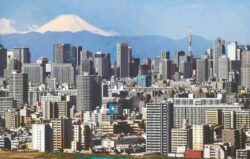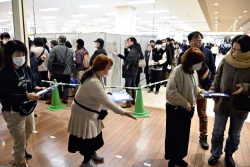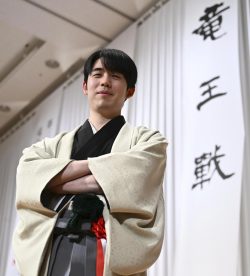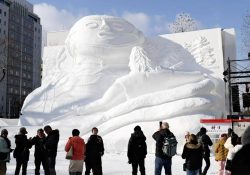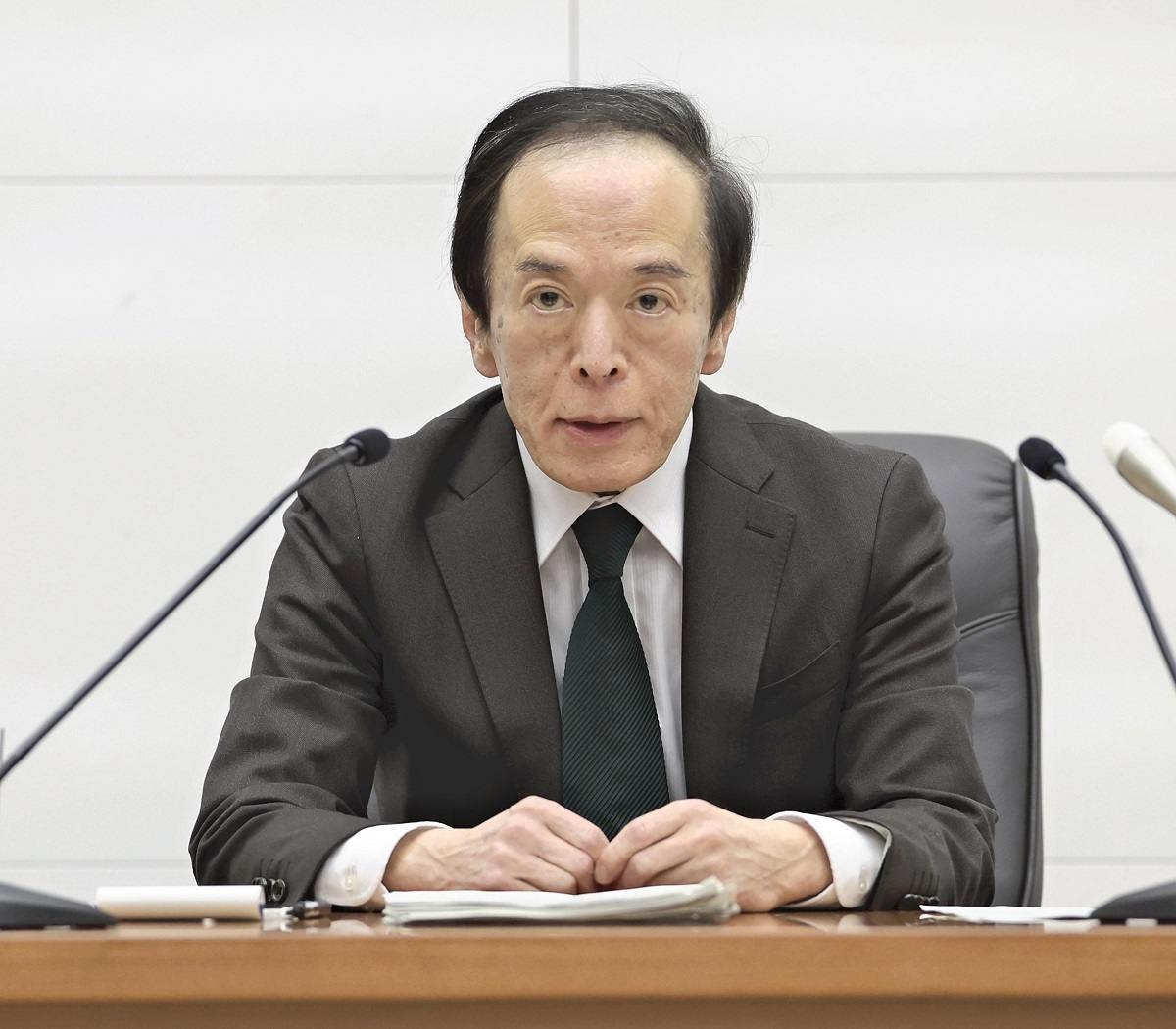
Bank of Japan Gov. Kazuo Ueda attends a press conference on Tuesday.
12:35 JST, (updated at 18:12 JST)
The Bank of Japan decided Tuesday at its monetary policy meeting to end years of its negative interest rate policy and other large-scale monetary easing measures, raising the short-term interest rate target to around 0%-0.1%.
The bank also will abolish its yield curve control (YCC), which caps long-term interest rates around zero, as well as new purchases of exchange-traded funds (ETFs) and Japan real estate investment trusts (REITs), which started in 2010.
The decision marks the first time the central bank has raised interest rates since February 2007.
The bank’s statement released after the meeting said it would “encourage the uncollateralized overnight call rate to remain at around 0% to 0.1%” Until now, the BOJ has pushed short-term interest rates for market transactions below 0% by applying an interest rate of minus 0.1% to some current accounts that private financial institutions hold at the BOJ.
The BOJ said it will review the framework for purchases of long-term Japanese government bonds, stating that the bank “will continue its JGB purchases with broadly the same amount as before,” and will buy ¥6 trillion per month.
In addition, the central bank will end purchases of ETFs and REITs, which the BOJ significantly increased in 2013.
The bank also deleted its forward guidance that stated it “will not hesitate to take additional easing measures if necessary.”
BOJ Gov. Kazuo Ueda said at a press conference after the meeting: “There is still some distance to go toward achieving a stable 2% inflation target. For the time being, it is important to maintain an environment of monetary easing.”
Asked about the outlook for future interest rate hikes, Ueda said, “The setting of short-term interest rates will be the primary means of the monetary policy. Like other central banks, we will consider the appropriate level of policy rates in accordance with the outlook for prices and the economy.”
The BOJ has set a goal of achieving a stable 2% rise in prices that accompany wage hikes. Ueda had previously said the bank would “consider whether to continue its easing measures once it could foresee achieving its inflation target,” and “the trend of shunto spring wage negotiations is one of the major points” for the decision to change the policy.
A tally of the first round of 2024 wage announcements released Friday by the Japanese Trade Union Confederation, or Rengo, showed the average wage increase was 5.28%, exceeding 5% for the first time in 33 years, since 1991.
Although some within the BOJ were cautious about changing the policy, the bank made the decisions following the high wage hikes that were presented one after another at this year’s negotiations.
The BOJ introduced “unprecedented” monetary easing under former Gov. Haruhiko Kuroda, who took office in 2013. The bank decided to introduce the negative interest rate policy in January 2016, and it introduced YCC in September of the same year.
Top Articles in Business
-

Japan, Italy to Boost LNG Cooperation; Aimed at Diversifying Japan’s LNG Sources
-

Honda to Launch New Electric Motorbike in Vietnam
-

Asics Opens Factory for Onitsuka Tiger Brand in Western Japan
-

Japan’s ANA to Introduce Nationwide Logistics Service Using Drones, Will Be Used to Deliver Supplies in Remote Areas
-

JR Tokai, Shizuoka Pref. Agree on Water Resources for Maglev Train Construction
JN ACCESS RANKING
-

Univ. in Japan, Tokyo-Based Startup to Develop Satellite for Disaster Prevention Measures, Bears
-

JAL, ANA Cancel Flights During 3-day Holiday Weekend due to Blizzard
-

China Confirmed to Be Operating Drilling Vessel Near Japan-China Median Line
-

China Eyes Rare Earth Foothold in Malaysia to Maintain Dominance, Counter Japan, U.S.
-

Japan Institute to Use Domestic Commercial Optical Lattice Clock to Set Japan Standard Time





